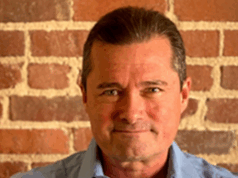 Name: JoAnn Shearer
Name: JoAnn Shearer
Title: Green Lodging Program Coordinator, Florida Green Lodging Program
Organization: Florida Department of Environmental Protection (DEP)
Years in current position: 1.5
Primary responsibilities: “Receiving designation applications, providing assistance to hotels, doing a lot of outreach, providing information on industry trends and managing the audit process. I do a lot of responding to e-mails and phone calls.”
Organization’s most significant environment-related accomplishment so far: “With 684 properties participating around the state, we believe the program has had a significant environmental impact. Our program has been the basis for other programs around the country.”
Organization’s most significant environment-related challenge: “The recent economic struggles. That is improving, however. Another challenge is ongoing compliance by hotels. At the property level, housekeepers can be a challenge. If they are on board with our program, the program will do well.”
TALLAHASSEE, FLA.—As green lodging program coordinator for the eight-year-old Florida Green Lodging Progam, JoAnn Shearer has a lot on her plate. In size, the program she oversees is approaching 700 designated properties. Assuming rental condos and homes are not counted, that number represents more than 10 percent of all lodging establishments in Florida. With participating properties up for renewal every three years, Shearer is almost constantly evaluating properties for designation.
Like other state programs around the country, Florida’s has had to weather some tough economic times. Almost three years ago the program was reduced from four workers to one. Today, Shearer is the main contact but is assisted by Brad Stombock, director, Office of Sustainable Initiatives, Florida DEP, to whom she reports. Three retired engineers provide audits and technical assistance.
“We also have great support from our district offices around the state,” Shearer says.
The number of lodging establishments participating in the Florida Green Lodging Program has grown from 520 in June 2009 to its 684 today. The program experienced its greatest growth following the implementation of an Executive Order that went into effect at the beginning of 2008. It stated that state agencies and departments under the direction of the Governor could not contract for meeting and conference space with hotels or conference facilities that had not received the Florida Department of Environmental Protection’s Green Lodging program designation, except when certified to the Governor by the responsible agency head that no other viable alternative existed.
In June 2008, former Governor Charlie Crist signed House Bill 7135, “The Energy, Climate Change, And Economic Security Act Of 2008,” which built upon the framework of the executive order and expanded the Green Lodging meeting and conference requirement of Executive Order 07-126 from state agencies under the Governor’s direction to all state agencies.
Application Undergoing Evaluation
One of Shearer’s duties is to bring new lodging establishments into the program. She helps coordinate educational webinars and is currently working on revising the application that hoteliers and innkeepers must complete in order to earn the Green Lodging Program designation.
Currently, to become designated as part of the program that is free, facilities must conduct a thorough property assessment and implement a specified number of environmental practices in six areas of sustainable operations: Communication and Education (customers, employees, public); Waste Reduction, Reuse and Recycling; Water Conservation; Energy Efficiency; Indoor Air Quality; and Transportation. The Florida Green Lodging designation is valid for three years from date of issuance. To maintain designation, properties are required to submit environmental performance data (water, waste, energy) annually. Properties must also implement at least two new environmental practices from any of the six areas of sustainable operations.
Shearer says that while an on-site audit is not a condition for designation, “The goal is to audit at least once over a three-year period.” According to the DEP’s Stombock, properties are given a two-week warning before the audit takes place.
Lessons Learned
In her position Shearer has learned what works and what does not work for hoteliers attempting to build a successful green lodging program. For larger properties especially, having a green team is critical. “It is easier for a group of people to implement green,” Shearer says.
Ongoing training is also vital, as well as having managers who speak and understand the language of employees. Language barriers can lead to a breakdown of green programs. In Florida one can come across different dialects of Spanish, Creole languages and Eastern European languages. Shearer says 95 percent of guest complaints have to do with housekeepers who do not follow proper towel and linen reuse practices. Oftentimes this is because of language but it also is due to pride issues.
Shearer, who has worked for the Florida DEP for parts of the last 10 years, has a B.A. in childhood development and a Master’s in Recreation and Leisure Services Administration from Florida State University. The native Floridian believes the Florida Green Lodging Program has had a significant positive impact on the environment as well as the bottom lines of the properties that participate.
“I really enjoy helping hotels improve their business,” Shearer says. “I enjoy seeing employees get involved. You really can save money and increase your occupancy by participating in our program.”
Go to the Florida Green Lodging Program.
Glenn Hasek can be reached at editor@greenlodgingnews.com.







